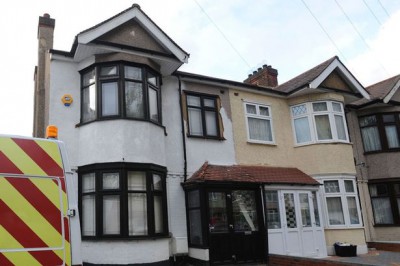Ancient Roman law gives illegal squatter £400,000 home. Or so you would think from the coverage of builder Keith Best’s Land Registry claim to have 35 Church Road, Newbury Park, Ilford, registered in his name.
The importance of the case is (or will be when it goes through appeals) that it should clarify how far the criminalisation of squatting (LASPO S.144) impacts on the law of adverse possession.
It’s a knotty problem. The Legal Aid, Sentencing and Punishment of Offenders Act 2012 rendered squatting illegal if the occupier “is in a residential building as a trespasser having entered it as a trespasser”. The Act is in a sense retrospective. You fall within it even if you entered the premises before the Act was passed – in Best’s case around 2000.
Best unfortunately staked his adverse posession claim after the Act came into force so the Land Registry rejected it on the grounds he was an illegal trespasser according to the meaning of Section 144. Adverse possession, far from being a Roman law, is covered by Schedule 6 to the Land Registration Act 2002 which says: “A person may apply to the registrar to be registered as the proprietor of a registered estate in land if he has been in adverse possession of the estate for the period of ten years ending on the date of the application.” A further two years is allowed while the registrar contacts the registered owner (“the proprietor of the estate to which the application relates,“) plus others with a potential interest to see if they object to the transfer to a new owner.
Adverse possession means open possession of the land without permission of the owner and without the owner having resisted. The 2002 law was intended to leave the principle alone (based, not on Roman law or “squatters’ rights”, but on the long-standing English legal concept of limitations to legal claims – now set out in Section 15 of the Limitation Act 1980). The Act also intended to pretty well abolish the reality of successful adverse possession – who would abandon their property for more than 10 years and then not make a simple claim for it when warned by the registrar that they would lose it?
But what if the possession by the squatter is illegal? Can a legal claim arise out of an illegal act? (The registrar insisted it can’t.) If so, Section 144 would seem to have abolished adverse possession (regarding residential property, not land or other property) without anyone realising it or debating it in Parliament.
The High Court judge, Mr Justice Ouseley, allowed Best’s claim on the basis the registrar had made an error in law. His reasoning is more or less as in the previous paragraph: that Parliament’s intention was not “to throw a spanner into the delicate workings of the 2002 Act, with random effects on the operation of adverse possession, all without a backward glance”. The LASPO provisions were not to deal with adverse possession but with the ordinary run of cases in which people are away from their homes and return to find them squatted. So:
“Parliament should be taken to have thought that the public policy advantages of adverse possession at common law meant that the mere fact that the adverse possession was based on criminal trespass did not and should not preclude a successful claim for adverse possession.”
There are many, no doubt, who will not see the benefits of adverse possession, preferring as they do to protect the rights of owners of unused, mouldering and collapsing property over those who would wish to put it to use for living in. But Ouseley’s view is that Parliament did not take that view and wished to leave the adverse possession regime intact.
There is strength in this argument, not least that the problem of how S.144 would interact with adverse possession was so blindingly obvious to anyone with a minimal knowledge of property law (as this author professes) that if a change to the Limitation Act was intended, a change should have been made. Not least because this conundrum was inevitably going to be one of a number of areas of uncertainty that would clog up court time as a result of the passing of the ant-isquatting provisions of LASPO (as pointed out here: Criminalisation of squatting: how protection could crumble. Ouseley believes that there are many such adverse possession cases in the pipeline.
So what are the prospects for Mr Best? He’s made a good start, but, one fears he might fall at the final hurdle. The President of the Supreme Court, Lord Neuberger, steeped in property law as he is, is rather less careful with constitutional niceties. As he showed with the Daejan case (see: Supreme Court flies in face of legislation), he is more than likely to think that “Parliament can’t possibly have wanted a person to make windfall gains and so I shan’t allow such a windfall to this applicant”. He may think in terms of implied repeal or some notion that a claim cannot arise out of an illegal act. He may even refer back to Roman law which has the advantage of requiring legal possession before a claim can be made (though it must be said Best was not illegally in possession before LASPO and totted up his 10 years). Or he may simply substitute his own will for that of Parliament on the basis that Parliament did not make its will clear enough to him.
Whatever happens, because of this botched and wholly unnecessary piece of legislation, there will be a long, expensive and tortuous process with no certainty of the outcome. And there will be more such to come.
Twitter: alrich0660
There is a good report on the Best case on Nearly Legal
The case is reported in full here A view on why S.144 of LASPO was unnecessary is here
And this is about the David Gauntlett case

